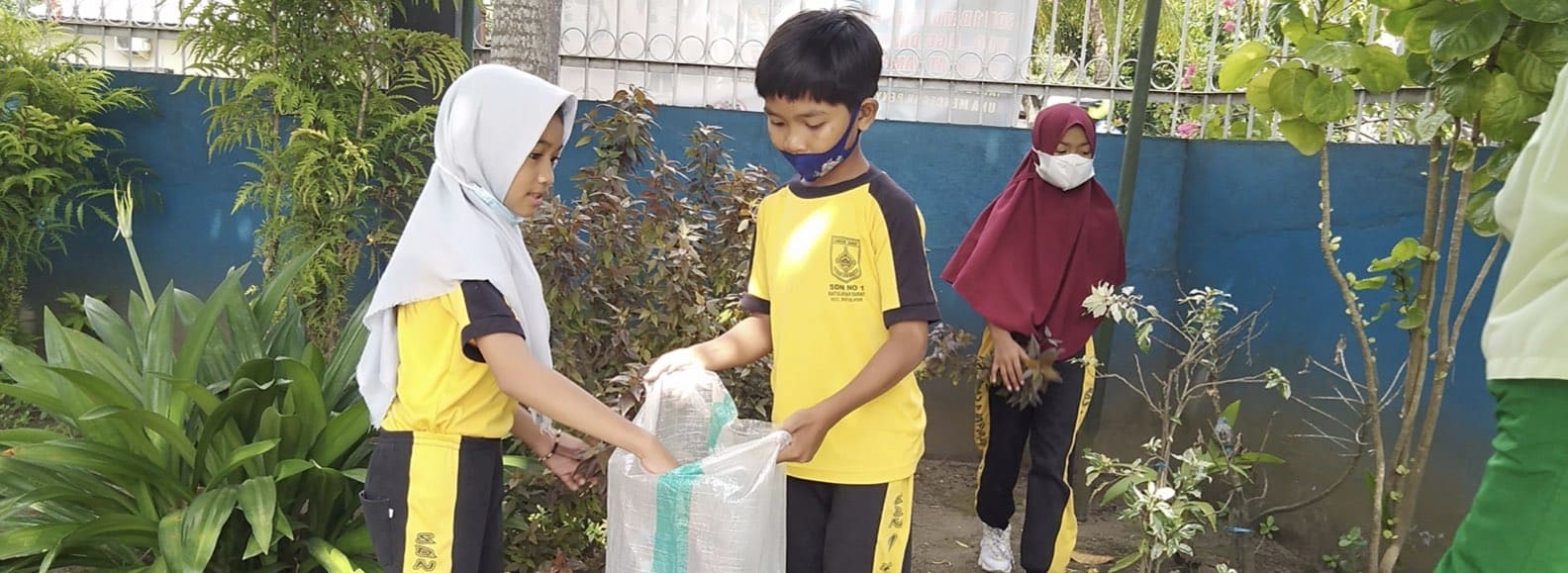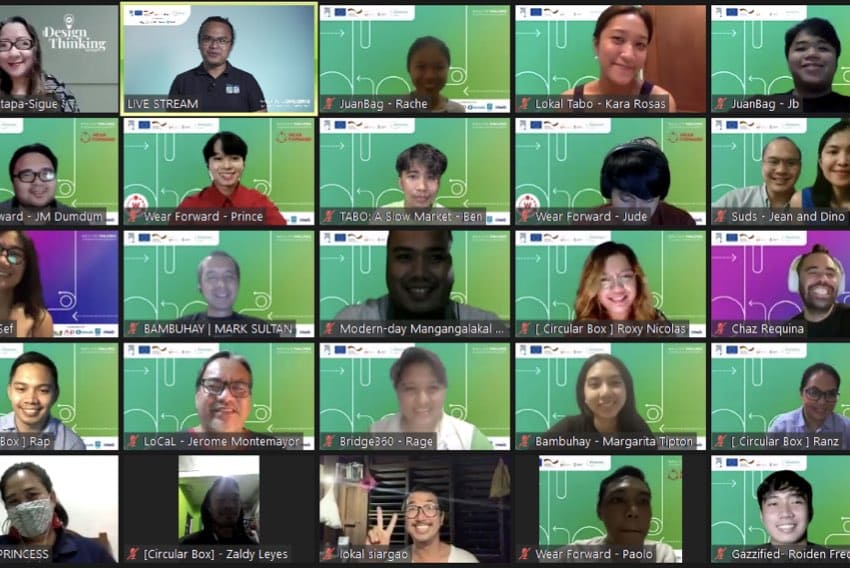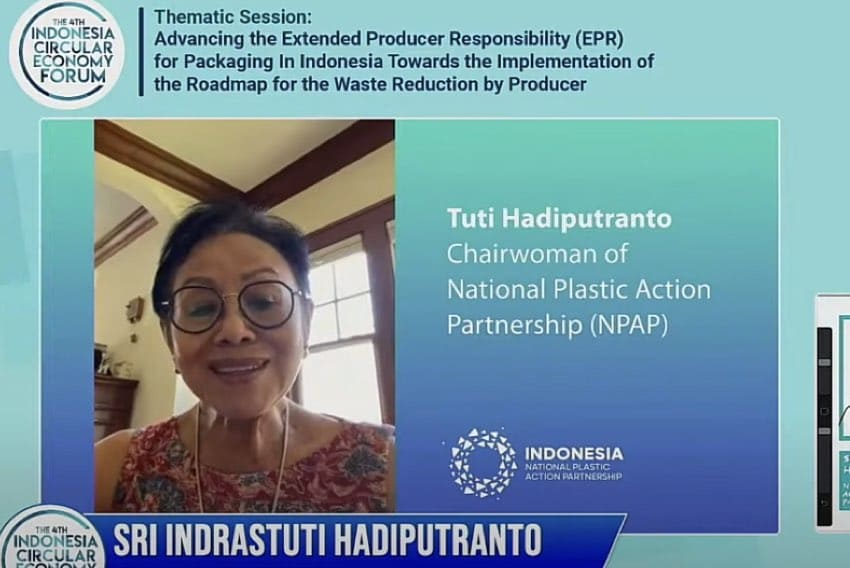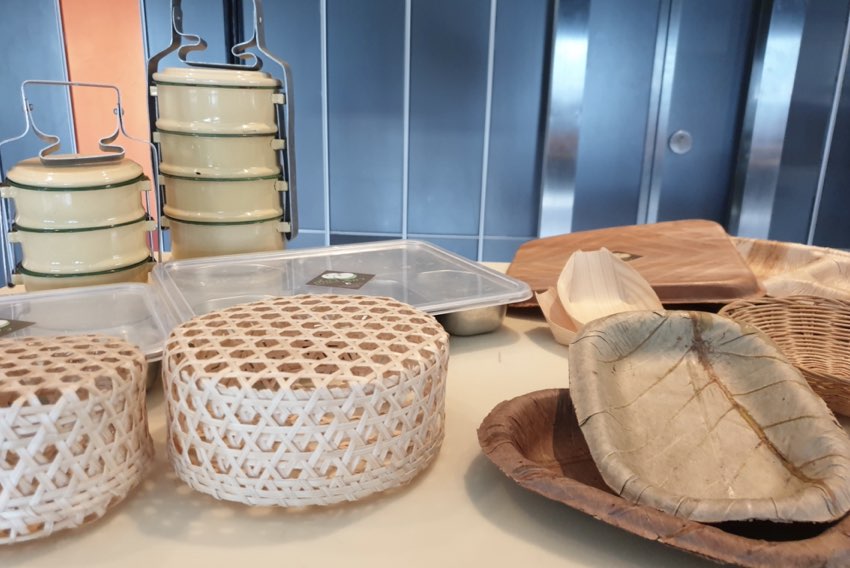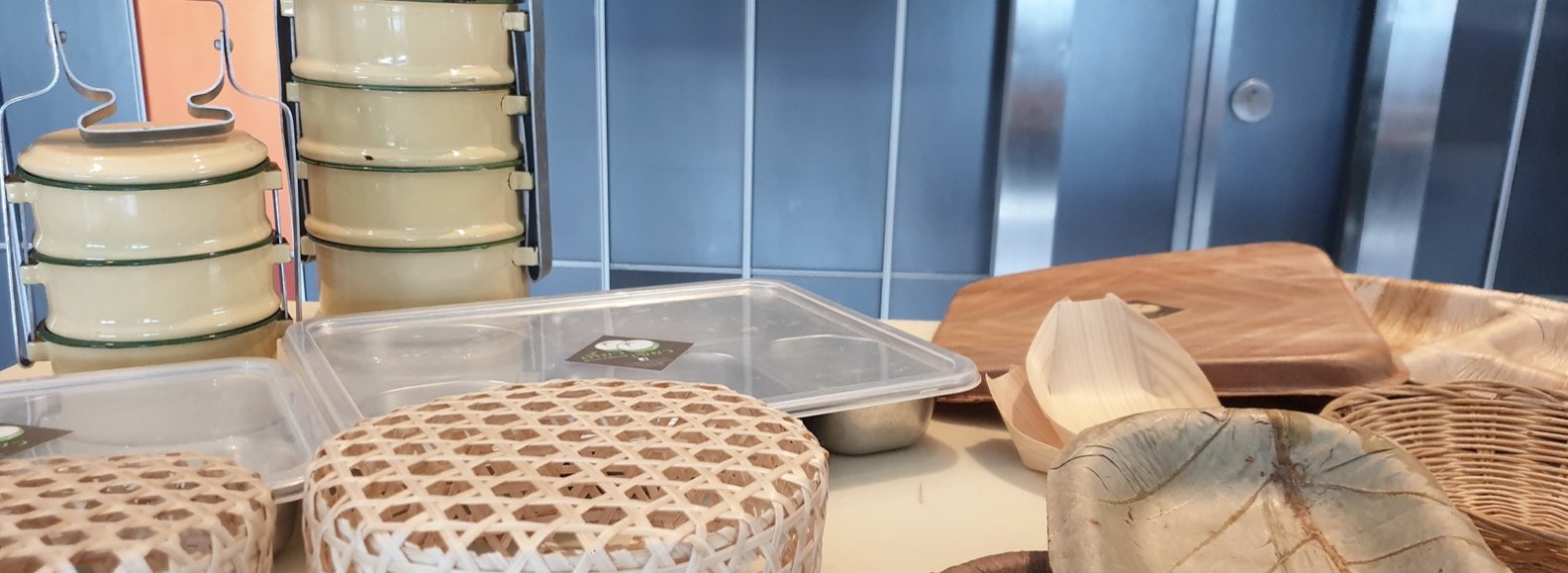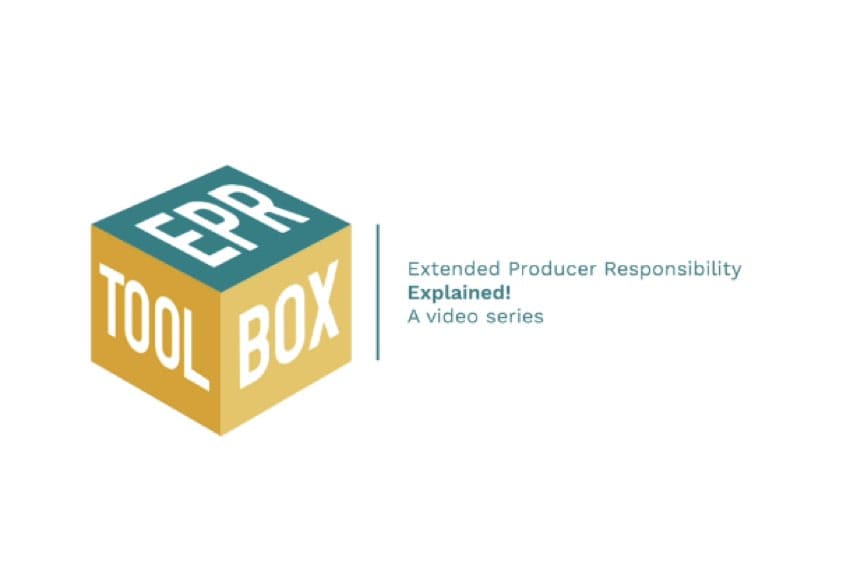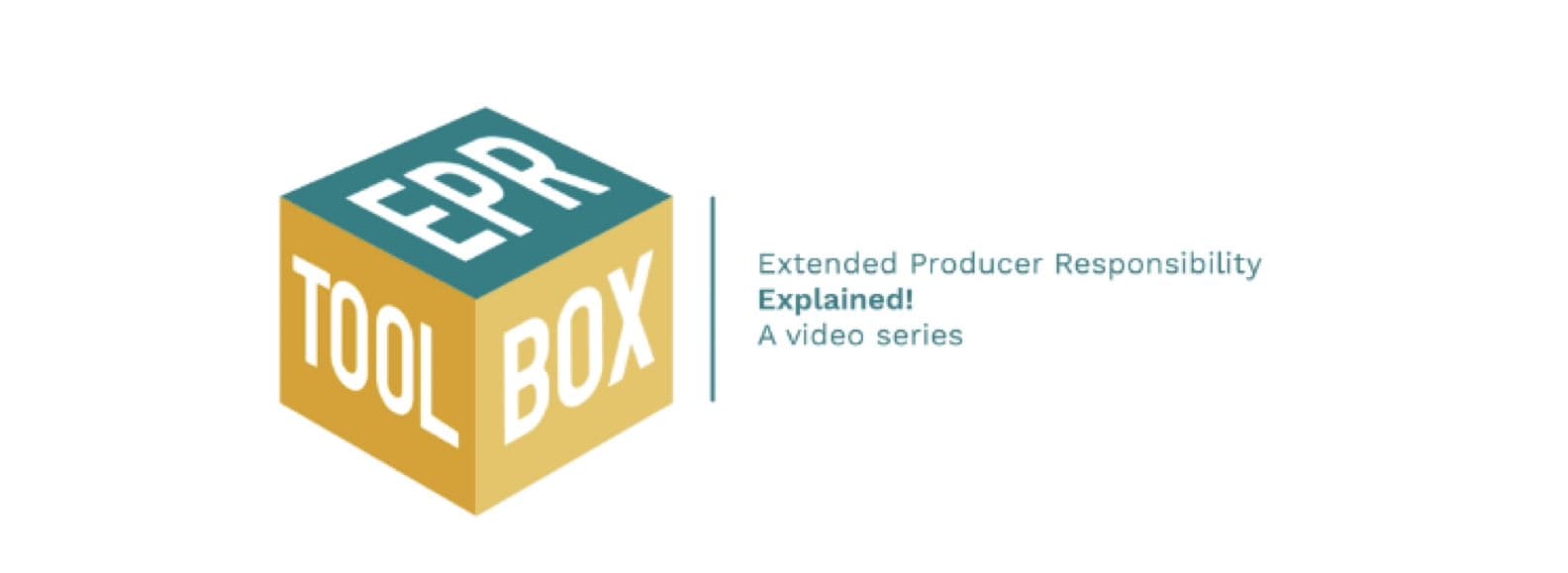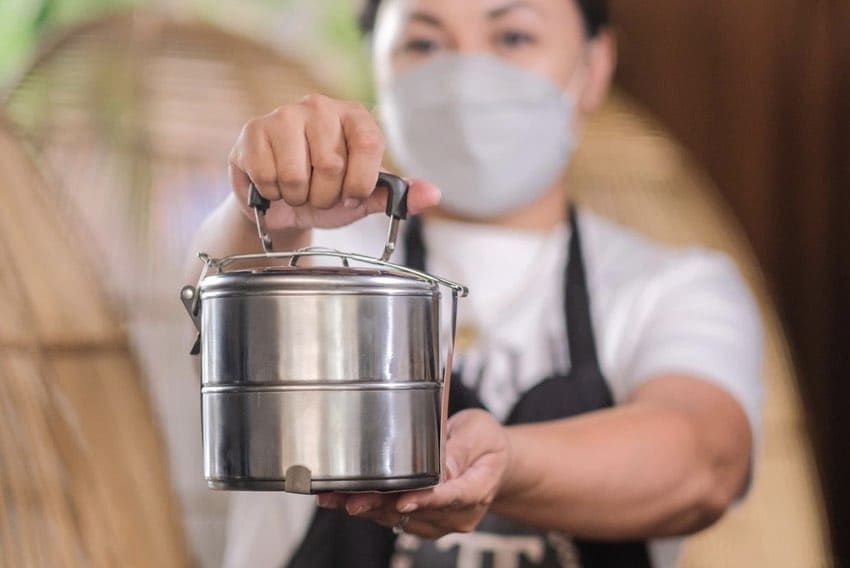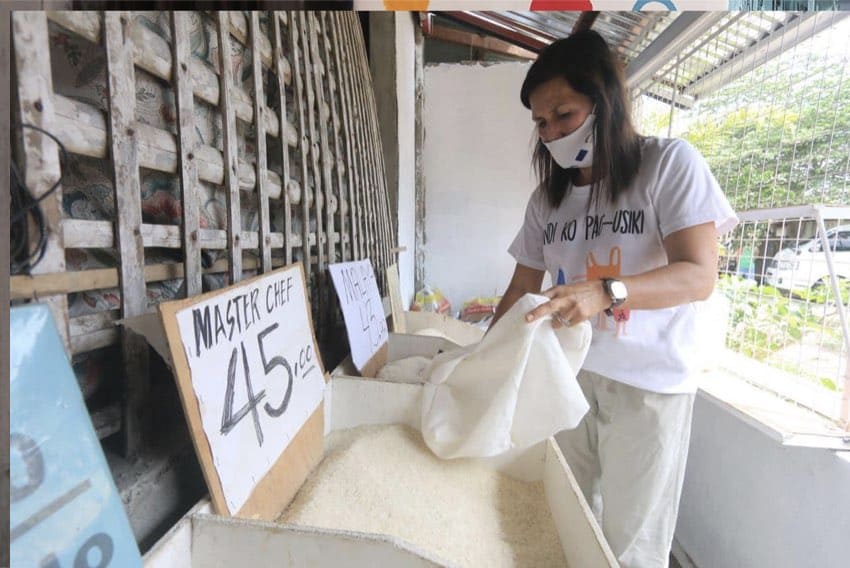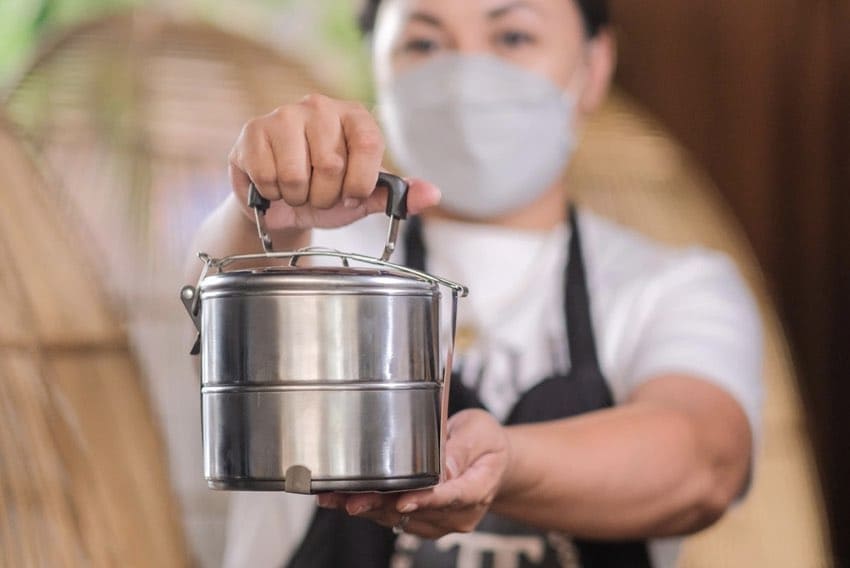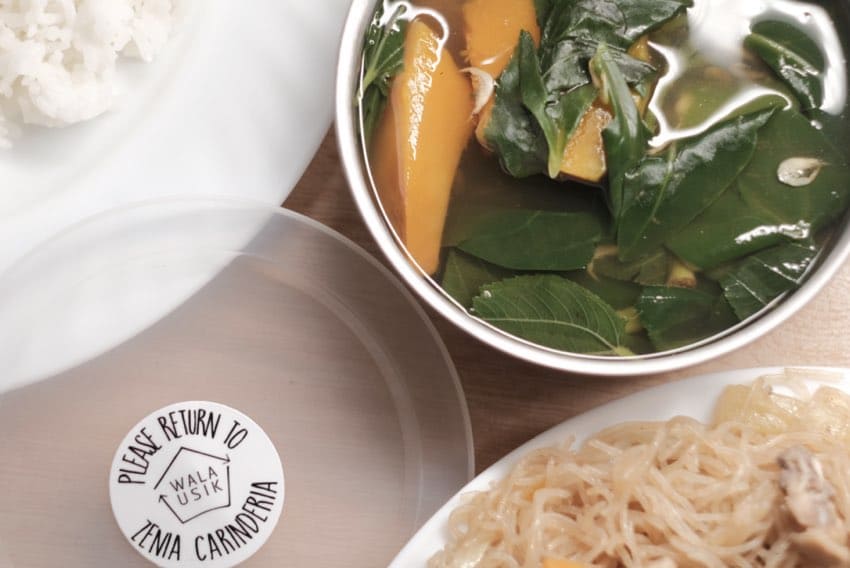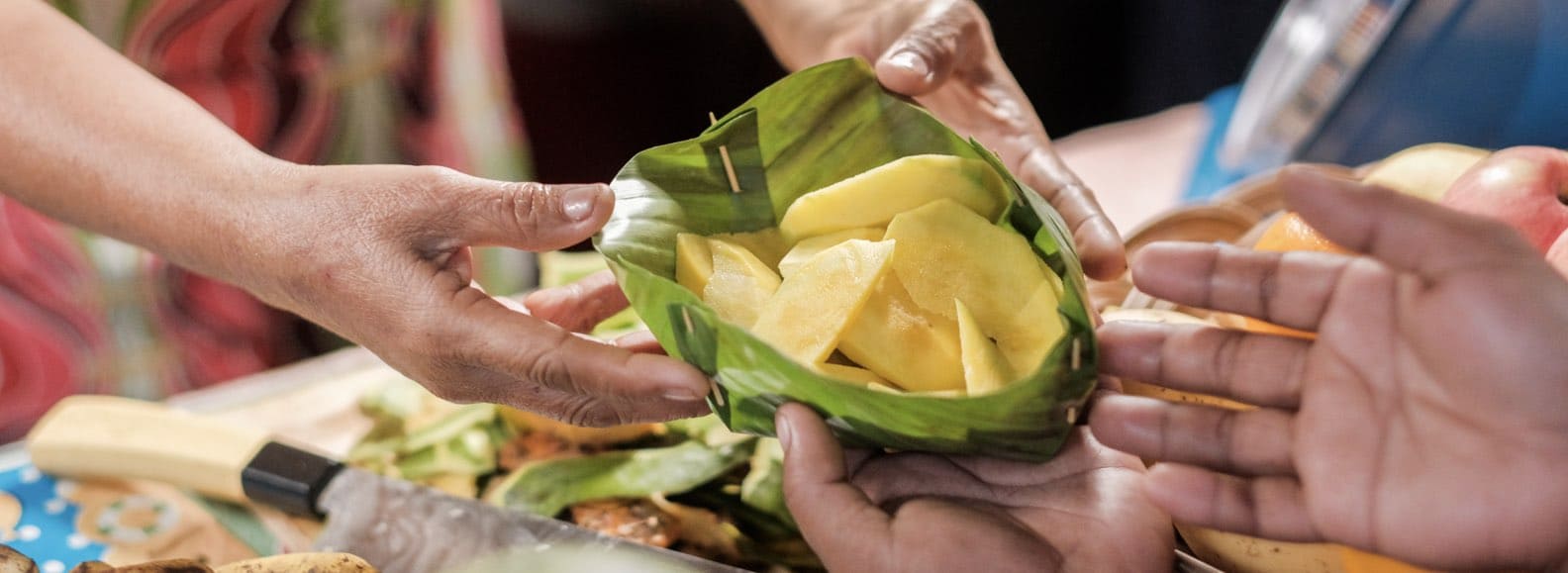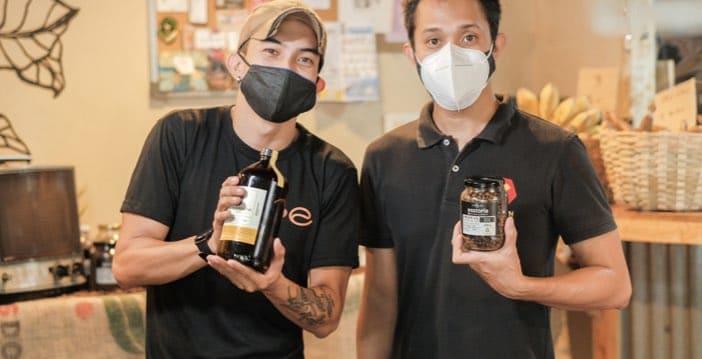- Country: The Philippines
- key Area: Consumption & Production
- Related item: Wala Usik – Nothing is wasted
- Banner1:
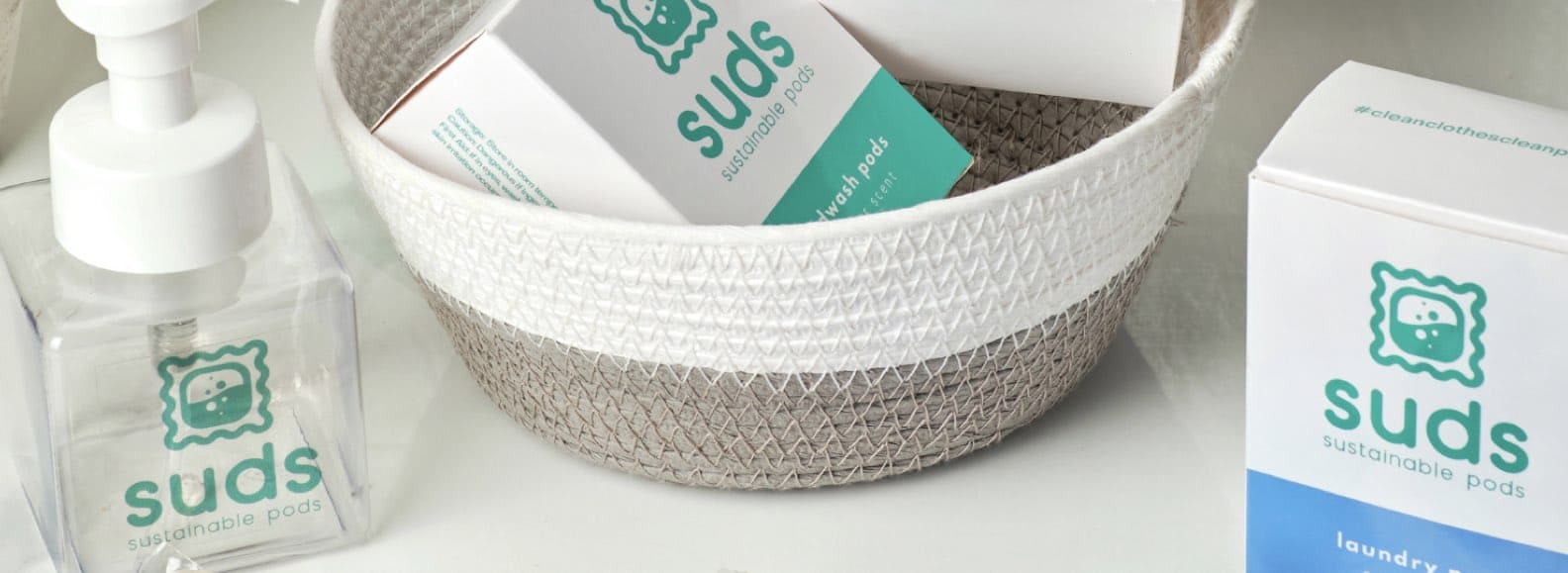
- Banner2:
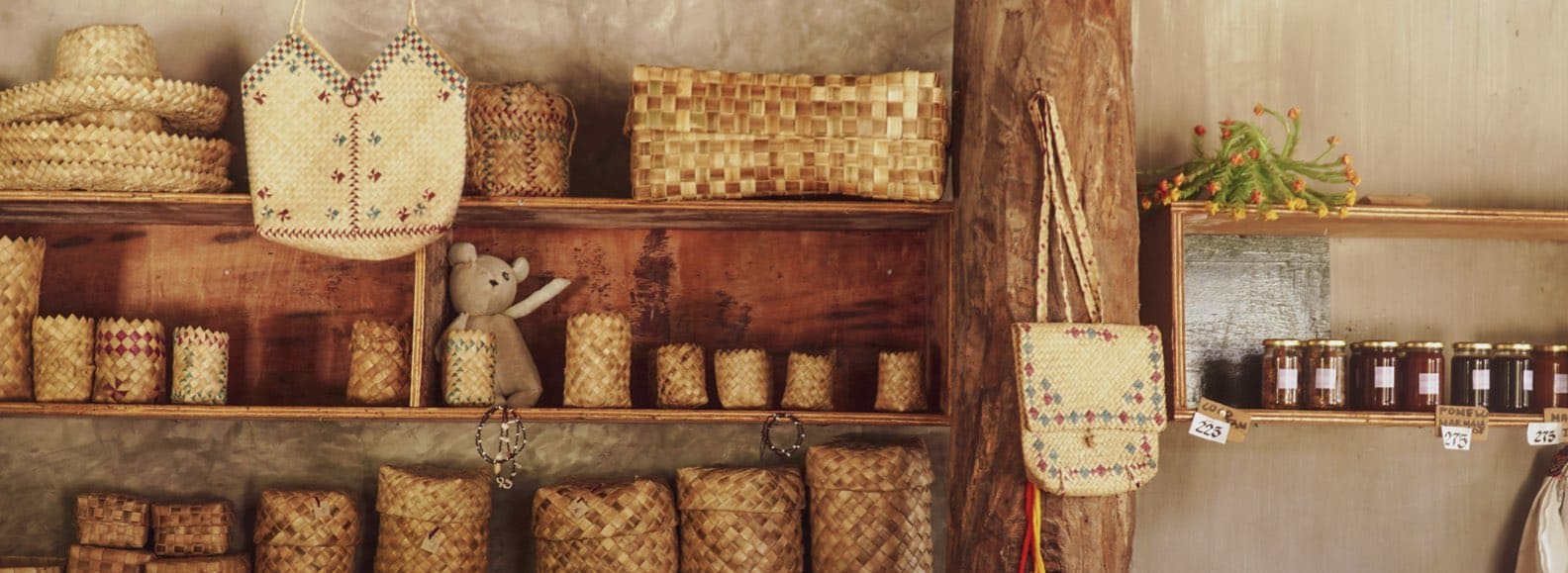
- Banner3:
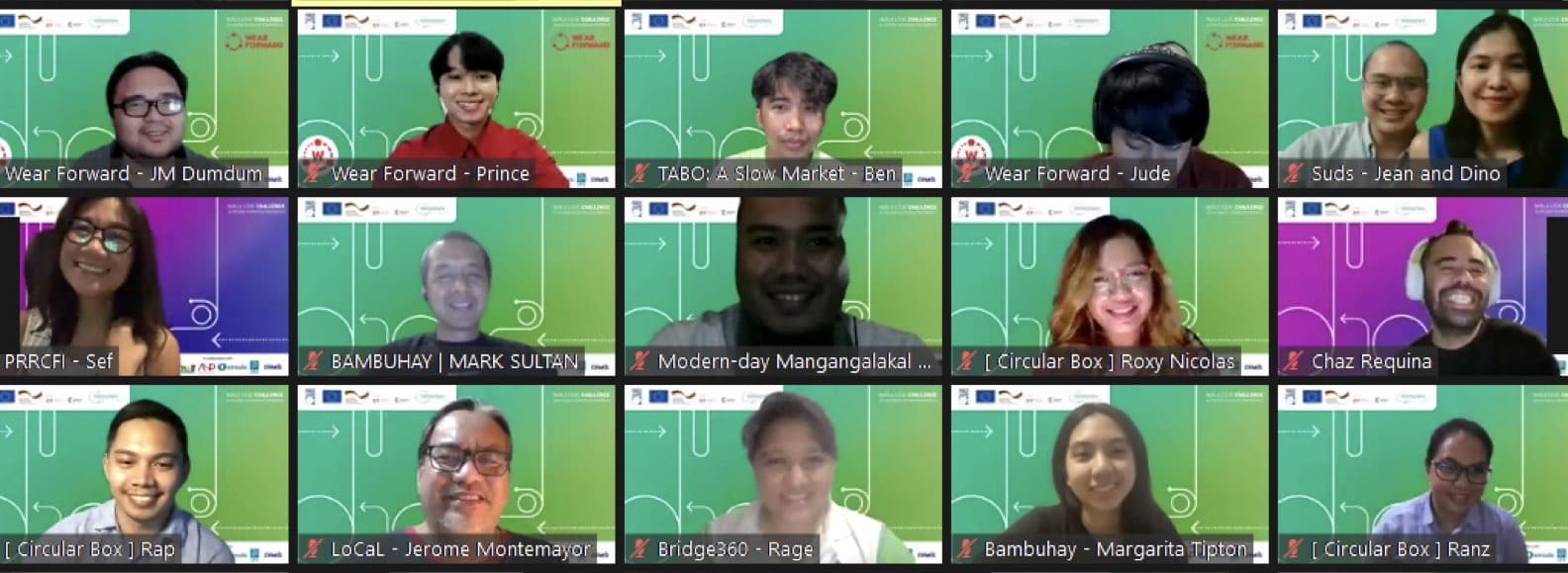
- Text Body 1:
Innovations are needed! This thought marked the starting point for the Philippine Reef and Rainforest Conservation Foundation, Inc. (PRRCFI) to come up with the Wala Usik Challenge: A Circular Economy Hackathon under their ‘Rethinking Plastics’ pilot project. They therefore invited interested teams to develop and share ideas which design out waste and pollution, keep materials in use, regenerate natural resources, and contribute to the United Nations Sustainable Development Goals.
- Picture 1:
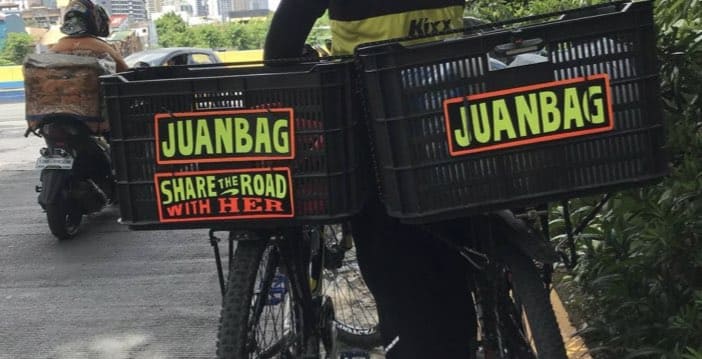
- Picture 1 Description: A JuanBag delivery biker. Photo by JuanBag/Rachel Lacanlale.
- Text Body 2:
Interested teams could apply between April and August out of which 18 promising nationwide teams were selected. During a four day hackathon between 27-30 August 2021, the 18 finalists prepared and pitched their Wala Usik ‘hacks’ or circular ideas that ranged from a plantable toothbrush, shared reuse systems, apps which use AI and machine learning to calculate a person's carbon footprint and make recycling easier, to alternative packaging materials produced from agricultural waste such as rice hulls, sugar bagasse and corn husks. Circular models, markets and vendors that encourage refilling and reusable bags and containers, and which support local and sustainable businesses, were also in the spotlight.
Experienced mentors supported the idea development during the four intense days while a diverse panel of judges - from the fields of engineering, social entrepreneurship, conservation, communications and community development - then rated and selected the five most promising startups and initiatives which are:
- Agubay, a fresh enterprise based in Negros Occidental, aims to produce cellulose-based bioplastic from rice hulls and other agricultural waste, potentially reducing single-use plastics which are not compostable.
- JuanBag is designing upcycled reusable packaging which are returnable to online shops. With the prevalence of deliveries, this innovation has high potential to be scaled and replicated in Philippine cities.
- Offering the same deep clean without the excess plastic bottles and sachet waste, suds sustainable pods are already making an impact on the market of personal and homecare products with their single-drop refills in water-soluble film.
- Tabo: The Slow Market by Lokal Lab Siargao taps local producers and consumers in building the popular island destination’s zero-waste community. Central to the plastic-free market will be a refillery for basic condiments like ‘toyo, suka, patis’ (soy sauce, vinegar, fish sauce) making the circular economy inclusive and accessible.
- Wear Forward, active in the advocacy for circular fashion in the Philippines, pitched their artificial intelligence(AI)-powered platform and marketspace where their subscribers can buy, rent, and swap preloved, upcycled and refashioned clothes. Textile waste and fast fashion rank high in the sources of marine debris as well, which this innovation is addressing.
The Top 5 will each receive a seed fund of Php 100,000 and support to ensure the sustainability of their ideas. Concretely, they will go through two months of business incubation with the project’s ecosystem of enablers, which already kicked-off when right after the hackathon some of the teams were invited to be part of the Department of Science and Technology - Technological University of the Philippines - Hub for Innovation and Value Engineering (DOST TUPV HIVE). Even those participating teams who did not get the seed fund now have opportunities to collaborate with each other and the network of “Wala Usik Economy” built during the hackathon. “Wala Usik” is a Filipino phrase for circular design where ‘nothing is wasted’ and in which our natural ecosystems are thriving.
The virtual events took place in collaboration with the Design Thinking Factory, Negros Women for Tomorrow Foundation (NWTF), Association of Negros Producers (ANP), Circulo, Save Philippine Seas, and the Carlos Hilado Memorial State College-DTI Negros Occidental Center for DELIGHT (Design, Entrepreneurship, Leadership, Innovation, Good Ideas, Human Development and Technology Transfer).
More about the Wala Usik project: WALA USIK – Philippine Reef and Rainforest Conservation Foundation, Inc. (prrcf.org)
- Picture 2:
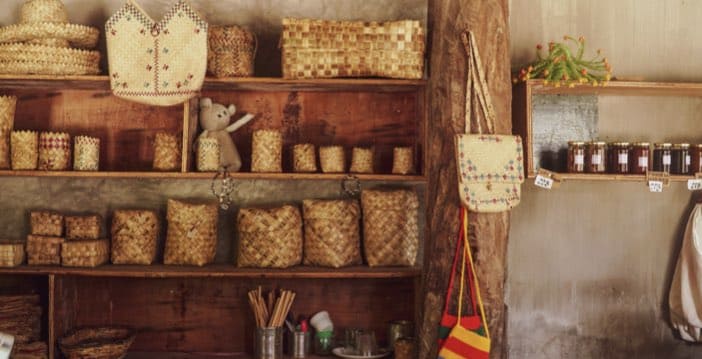
- Picture 2 Description: Tabo: The Slow Market by Lokal Lab Siargao taps local producers and consumers in building the popular island destination’s zero-waste community.
- Country: Indonesia
- Gallery:
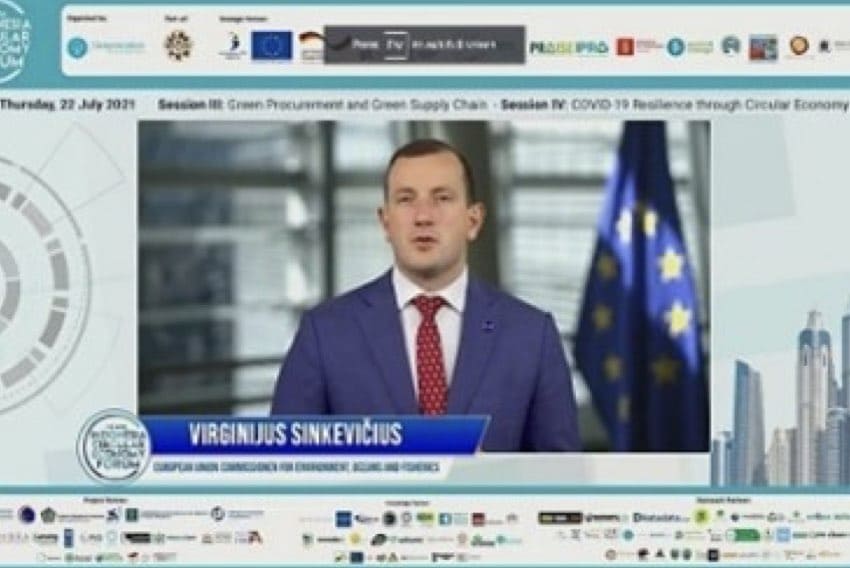
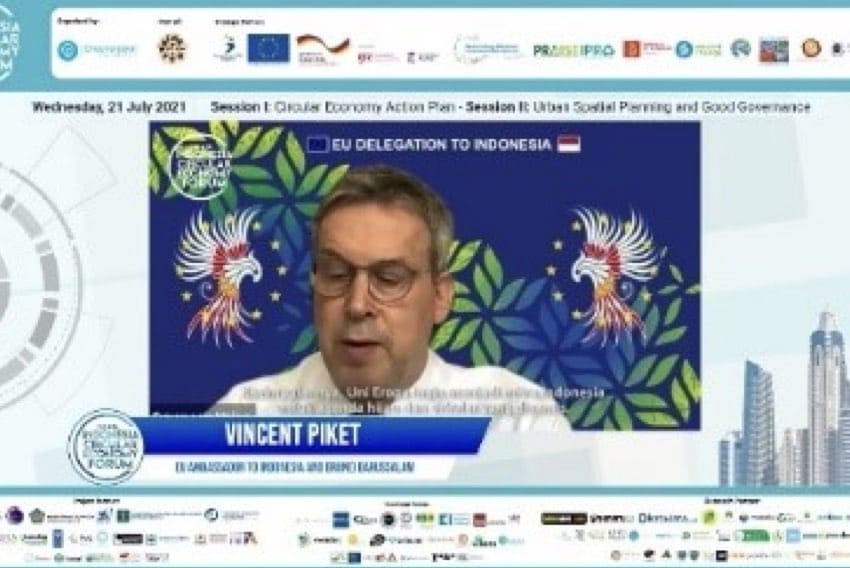
- key Area: Waste Management, Circular Economy
- Banner1:
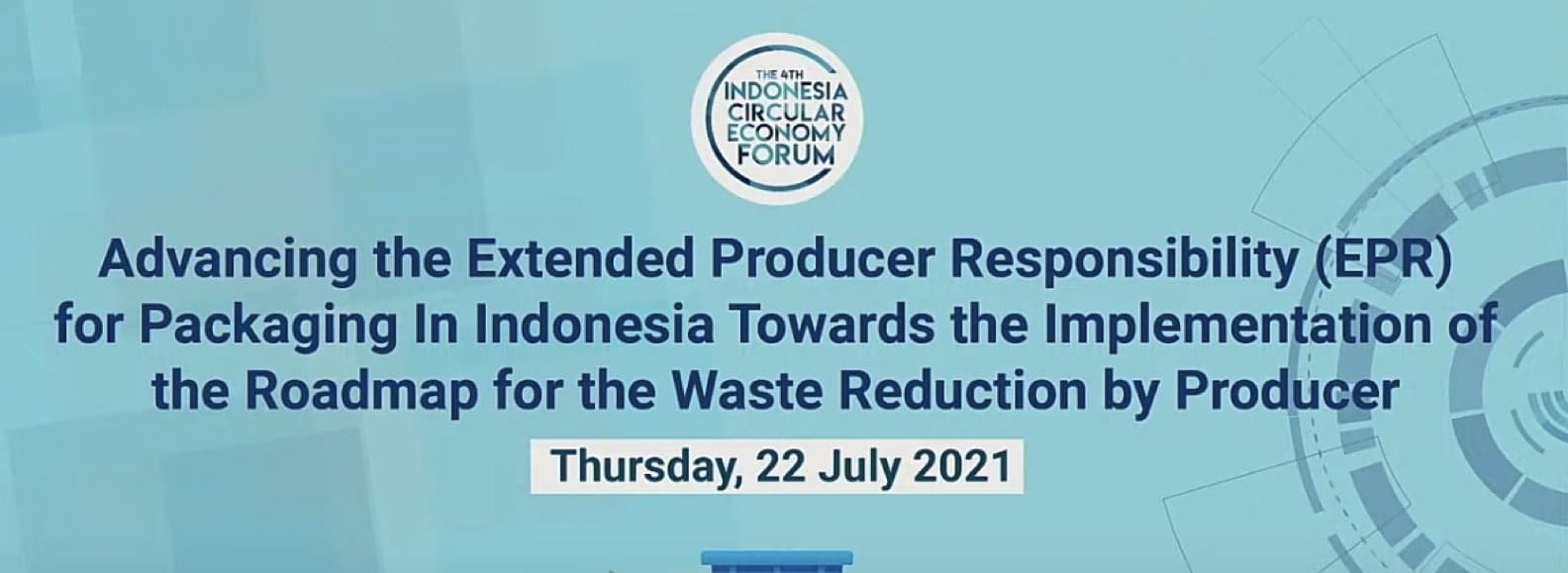
- Text Body 1:
All good things come in threes: ‘Rethinking Plastics’ was after 2019 and 2020 once again a strategic partner of the Indonesia Circular Economy Forum (ICEF). ICEF 4 took place from 21 to 23 July with the theme: “Towards smart & sustainable cities through circular economy: building resilience during covid-19 recovery”.
- Text Body 2:
More than 4,000 participants joined the three days of discussing Circular Economy solutions for Indonesia. ‘Rethinking Plastics’ co-organised two thematic sessions in collaboration with national partners: It kicked of with a session on Circular Cities and Eco-Tourism, focussing on Waste Management on 21 July 2021 in collaboration with the Bandung Institute of Technology, Environmental Engineering Alumni (IATL-ITB), presenting speakers from various backgrounds. The session can be rewatched here.
The second session on 22 July covered ‘Advancing EPR for Packaging’ in collaboration with the National Plastic Action Partnership (NPAP), the Indonesia Packaging Recovery Organisation (IPRO) and the Indonesian Coordinating Ministry for Maritime and Investment Affairs. In both sessions, some of the pilot projects from Indonesia under ‘Rethinking Plastics’ shared their experiences so far. Other speakers included representatives from the Indonesian Ministry of Environment and Forestry (MoEF), PRAISE, the Indonesian Plastics Recycling Association ADUPI, the World Bank, the Danish Protection Agency, the Dutch Ministry of Infrastructure and Water Management and the Ministry of Natural Resources and Environment (MONRE) of Vietnam.
The ‘Advancing EPR’ session can be rewatched here.

